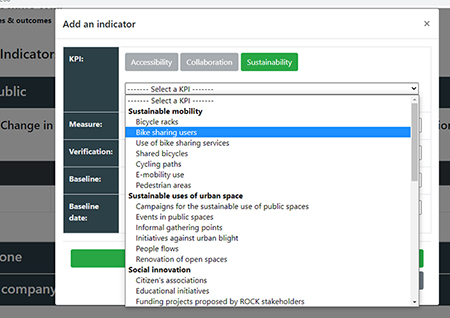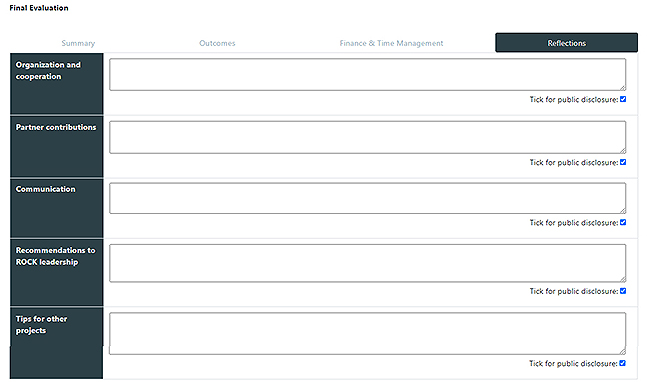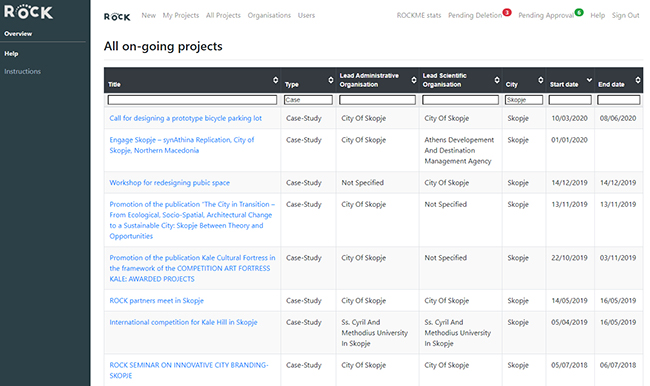
Regeneration and Optimisation of Cultural heritage in creative and Knowledge cities
ROCK is an EU project looking at Cultural Heritage (CH) as a driver for sustainable growth by using state of the art tools, policies and practices. It will demonstrate how the historic centres of European cities can be considered extraordinary "living laboratories" in which to experiment new models of urban regeneration led by cultural heritage (tangible and intangible), as well as innovative and unconventional financing mechanisms which involve multi-cultural and multi-actor integrated viewpoints.
ROCK aims to develop an innovative, collaborative and systemic approach to promote the effective regeneration and adaptive reuse in historic city centres by implementing a repertoire of successful heritage-led regeneration initiatives related to 7 Role Model selected cities: Athens, Cluj-Napoca, Eindhoven, Liverpool, Lyon, Turin and Vilnius.The project will deliver new ways to access and experience Cultural Heritage (CH) ensuring environmental sound solutions, city branding, bottom-up participation using living labs, while increasing liveability and safety in the involved areas.
The replicability and effectiveness of the approach and of the related models in addressing the specific needs of historic city centres and in integrating site management plans with associated financing mechanisms will be tested in 3 Replicator cities: Bologna, Lisbon and Skopje.
SEI is leading the development of a Project Monitoring, Evaluation and Learning tool based on its own PMEC tool. This will be maintained during two additional years after the project lifetime in order to capture outcomes arising from activities that may have only commenced towards the end of the project.
Project website: https://rockproject.eu/
The ROCKME Platform
The ROCK Monitoring & Evaluation (ROCKME) system is a web-based application to collate and store information on ROCK interventions (case studies, actions, activities, projects) together with all the data on the case studies.
ROCKME works at activity or project level: it allows cities and other consortium partners to monitor, evaluate and report on the overall impact of their interventions, who they have engaged, and whether they have achieved their intended outcomes and how.
It forms part of the centralised platform and integrates the Open Knowledge Portfolio, the Business Models database and the Financial Schemes database.
As part of the monitoring component of ROCKME is the application of Key Performance Indicators (KPIs) on which to assess progress and measure success of the stated outcome for each of the intended boundary partners. The generic set of KPIs has been developed in consultation with a Task Force on ROCK KPIs set up with members of the consortium and involving the 3 replicator cities. The KPIs were based on the three pillars of ROCK - Accessibility, Collaboration and Sustainability (shown below) but users can also easily set their own city-relevant KPIs.

ROCKME also enables organisations to report monitoring data on a regular basis and provides them with additional functionality to record information on key outputs from interventions (events, meeting, publications, media).
At the completion of an intervention, the evaluation component of ROCKME requires the city /organisation to provide details on how successful it achieved its outcomes; whether any changes in boundary partners and other beneficiaries were experienced e.g. behaviour change; whether timeplans and budgets were adhered to; and reflections about overall project management and consortium interactions.

A subset of the Information supplied to ROCKME is then utilised by the Interoperable Platform (IP) for analysis and knowledge awareness building by non-ROCK organisations such as other city municipalities.
An Open Source version of the Platform has been developed for other cities, regions or countries to adapt and use for their own cultural heritage regeneration programmes. Further details on how to access this will be provided in January 2021.
Project Website
Contact
Steve Cinderby (PI)
Developers
Howard Cambridge
Douglas Wang
Funding

This project has received funding from the European Union’s Horizon 2020 research and innovation programme under grant agreement No 730280.
ROCK is a 10.6 million euros EU Innovation Action programme comprising of 32 organisations:
10 cities (Bologna as project leader, Lisbon, Skopje, Lyon, Turin, Liverpool, Athens, Vilnius, Cluj-Napoca and Eindhoven),
2 city networks (Eurocities and ICLEI),
7 Universities, business associations and technological firms.

